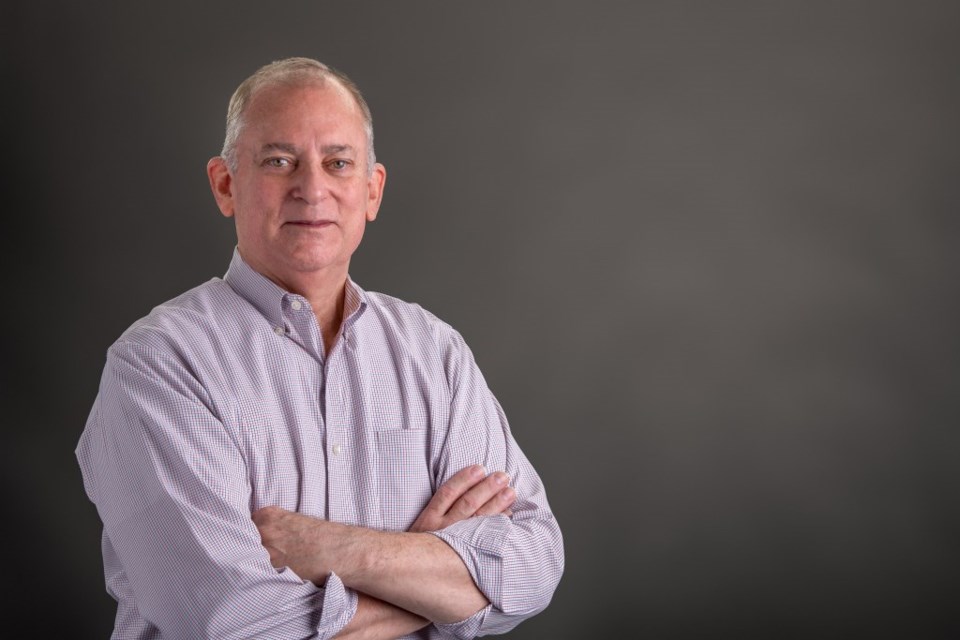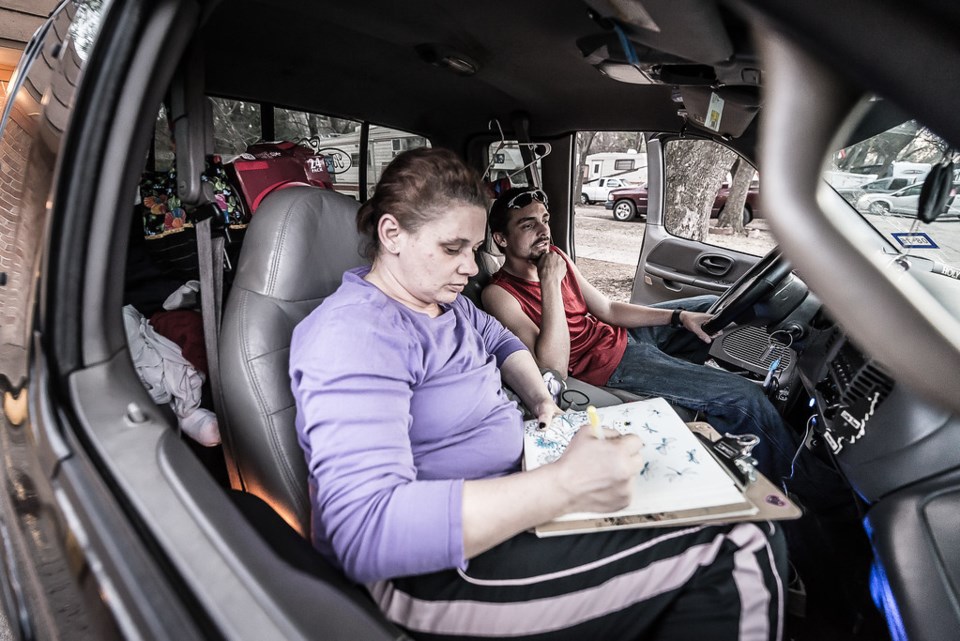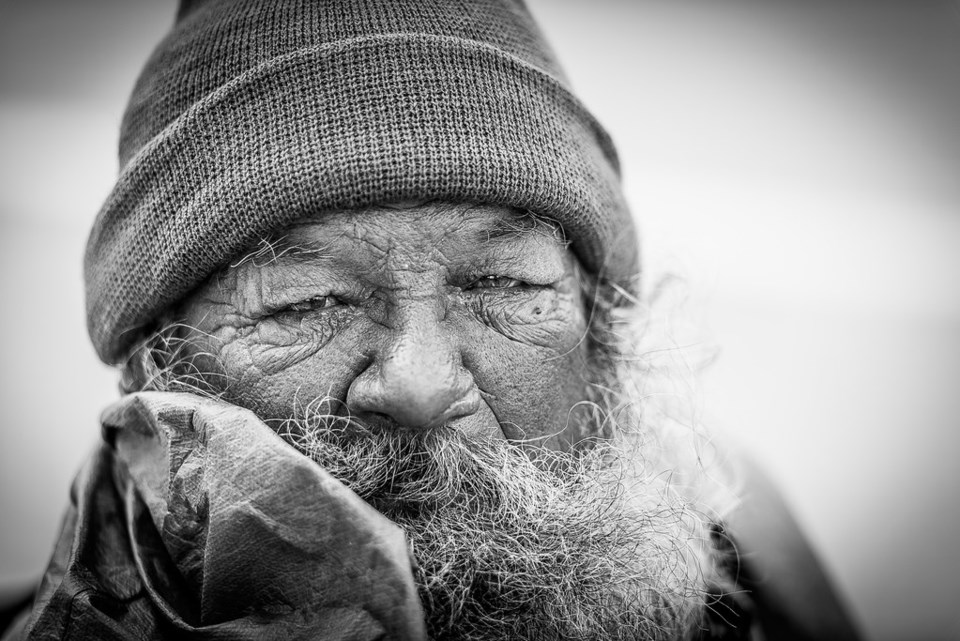A few months ago, Rick Grady was walking among the homeless who lingered in a tent city not far from Gov. Greg Abbott's mansion in Austin. They used to be located in parks around the state capitol until the city forced them to move. So, the homeless by the thousands sought refuge in TxDOT territory under the Interstate 35 bridge. Austin, according to an April 19 Austonia report, had seen a 45 percent increase in its unsheltered population when voters did away with the public camping ban in 2019. A year later, nearly 10,000 people were homeless, and Austin voters quickly returned to the polls to reinstate the public camping ban.
Yet it’s an increase being felt around the state, and for similar reasons. In Houston, one in seven homeless people–about 3,000 total, blamed COVID-19 for their situation, according to Houston's most recent Point-in-Time Homeless Count & Survey, while Dallas and Collin Counties saw a slight increase with 4,500 people homeless; a third of those counted were on the streets, and 40 percent of them had been on the streets between one and three years, the Dallas Observer reported in a May 14 report. But unlike Dallas County, Grady, a Place 3 Plano council member, points out that Collin County doesn't have a Parkland Hospital, an emergency shelter or transitional housing for homeless people.
“Now we have a law on the books that if the homeless are camping in a public area, they'll be arrested, fined $500 and put in jail,” he says. “Of course, they don't have $5, much less five hundred.”
For the past few months, the 72-year-old Plano council member has been scrambling with other city officials behind the scenes, trying to figure out how they're going to implement and enforce Texas’ new law–HB1925–which Grady says made it a criminal offense to be homeless in Texas. Abbott, according to Grady, signed it into law because lawmakers were unhappy with the homeless people they saw in Austin. But Grady doesn’t understand where the governor expects them to put the homeless people once they're arrested for violating the new law. The county jail, Grady says, doesn't have room for them, and the municipal jails weren't built to house an influx of homeless people.

“Homelessness can happen to anyone for many different reasons, and if they can’t fight, we have to fight for them.”
Rick Grady,
In a sense, the law is a slap in the face to someone like Grady who has been a champion advocate for the Collin County Homeless Coalition and involved in Metro Dallas Homeless Alliance. Grady's passion for helping homeless people traces back to his twenties when he was homeless after his discharge from the military. He faced the threat of homelessness again 30 years later after a divorce and a job loss. Grady mentions these instances whenever he appeals to state lawmakers in Austin for homeless assistance. Well-groomed, dressed in a business suit, he'll face state legislators and ask, “Do I look like a homeless person?”
For numerous reasons over many years, people hear the word “homeless” and believe it exemplifies a lazy person. “Not so,” Grady says. “Homelessness can happen to anyone for many different reasons, and if they can’t fight, we have to fight for them.”
Homeless Veteran
As a child in Madison, Wisconsin, Grady would often look at the night sky and dream about flying among the stars. In the 1960s, the space race between Russia and the U.S. was in full swing, and he assumed that the only way to get there was through the Air Force. His mother introduced him to an Air Force Colonel who lived next door and he, in turn, introduced Grady to the Civil Air Patrol, a United States Air Force Auxiliary. “They couldn't get me off that base,” Grady recalls.
At 13, he joined the Civil Air Patrol. At 14 he received a scholarship to get a private pilot license. A year later, he was flying solo, and then qualifying for his pilot license when he turned 16. In college, he joined the Air Force ROTC and planned to follow his dream to fly supersonic jets for the Air Force. But the Vietnam War was escalating, and Uncle Sam needed troops for the Army. Soon, Grady found himself in charge of a company of 120 Pathfinders but eventually flew and earned two Army Commendation Medals and the Vietnam Cross of Gallantry.
In the 1970s, a 24-year-old Grady left the service and discovered that he was now homeless. For years, the military had housed him, fed him, employed him. Now he was unemployed without housing. He wasn’t inclined to move in with his parents. “I wasn’t real sociable,” he says.
He was dealing with posttraumatic stress disorder (PTSD). “Life and death situations cause you to isolate yourself; you don’t relate to normal society and push away from it,” Grady says. “It depends on your war experience, whether it be Vietnam, Afghanistan, Iraq, Iran or Syria. All soldiers have different reactions, and mine was to put distance between me and others.”
According to a March 18 Military Times report, about 2,000 veterans are homeless in Texas, many for a reason similar to Grady’s.
For Grady, the distance that he wanted to put between him and others led him to Colorado, where he became a “ski bum” and traveled from one ski resort to another in search of work. In high school and college, he was a downhill ski racer and used that experience to work as ski patrol for ski resorts. They would feed him, and he slept on a bench or couch at closing time.
“A lot of PTSD symptoms are similar to depression,” Grady says. “In my case, skiing in the snow was my outlet. It was just me and the mountain.”
He eventually came down off the mountain and returned home to enjoy a more social life.

Homeless Threat
Grady's next experience with being homeless occurred during the dotcom bubble burst in the early 2000s. He’d been laid off from his IT job. His mother had succumbed to Septicemia (blood poisoning), followed by his father who he says died from a broken heart. Then Grady's wife left, leaving him to raise their 9-year-old daughter with no income.
He was struggling to find a job and fell behind on his mortgage payments on his Plano home, where he still lives. He spent a lot of time pleading with his banker not to foreclose because he knew that if he were forced to go to a homeless shelter, he and his daughter would be separated. “Some homeless shelters like Plano’s Agape Resource & Assistance Center will accept a single mother with children but there are few, if any, that will accept a single father with children,” he says. “It’s the way the system works. The court always feels that the best place for children is with their mother.”
For a couple of years, Grady was living below the poverty level, earning just enough to keep the lights and heat on and buy a little groceries and gas. “The first thing was to keep my daughter in school and provide ‘a normal life’ for her,” he says. “I would have dinner prepared when she came home from school and when she asked why I didn’t eat, I told her that I ate while I cooked. That wasn’t really truthful. I ate what was left over.”
To pull himself out of his situation, Grady turned to his Bible and dropped it, rather hard, on the table one day. It opened, he says, to Psalm 23, and he began to read: “The Lord is my shepherd; I shall not want.”
It was a turning point for Grady. “I carried that passage in my pocket during the Vietnam War. But my recovery was me wanting to recover. To move myself from where I was to what I wanted to be was the significant factor.” He says he stopped feeling sorry for himself and found more gainful employment.
Of course, he didn’t do it alone.
He spent about 18 months with a psychologist who told him that only Grady could turn the switch on for a happier life.
It worked.
A few years later, Grady was far removed from the threat of homelessness and joined a board of the Community Relations Coalition, an organization that grants money to nonprofits focused on helping people in the community. It led him to the Collin County Homeless Coalition. The Coalition’s mission is to increase awareness of homelessness, coordinate advocacy for the homeless and empower collaborative programs and services. It’s a part of the TX-600 Continuum of Care (CoC), a regional planning body that coordinates housing and services funding for homeless families and individuals.
Grady is aware of homeless people who live on Plano streets. According to the annual January 2020 Point in Time Homeless Census, nearly 600 people are homeless in Collin County on any given night. The census also found that 1 in 3 were children, 1 in 5 was fleeing domestic violence, 1 in 10 is a veteran, and 2 out of 3 held jobs.
For the homeless people they are aware of, Grady says that they huddle together for protection and two appointed Plano police officers watch out for them by checking on their safety, providing blankets, backpacks and food packets that they keep in the back of their police cars.
“Life and death situations cause you to isolate yourself; you don’t relate to normal society and push away from it.”
Rick Grady, Plano City Council Member, Place 3
But there is also a concern for Plano senior citizens who may cause this number to spike due to the lack of affordable housing in the area. There is a concern for those living in apartments and are finding their rents increase more rapidly than their income because of Plano’s rapid growth and the demand for housing.
The Collin County Homeless Coalition is keenly aware of the seniors living on fixed incomes and the inability to increase their cash flow. The Coalition is also aware of the issues that evictions will bring to the homeless situation. Grady and Coalition leaders recently convinced Collin County Judge Chris Hill and his fellow commissioners to apply for grants made available by the Department of Treasury to protect seniors from eviction and homelessness.
“What we don't treat is all of the symptoms of homelessness,” Grady says. “We need to catch this before you end up in the whirlpool, because unless somebody reaches in and grabs you out, you lose everything.”
Crime of Homelessness
Nearly a year has passed since Grady and Coalition members pleaded with the Plano community to make a concerted effort through prevention, diversion and intervention by offering more resources to help keep Plano’s families and neighbors off the streets.
Covid-19 has only exponentially increased this need, according to the Coalition.
To address this rising need, Grady and the Coalition created the C-Plan initiative, which seeks to bring about sustainable change in how city and county officials address homelessness. The action plan offers a five-pronged approach that focuses on housing, coordination, resources, support and data. It includes working with cities to develop long-term goals for affordable housing and with county-wide policymakers to remove barriers and implement long-term goals to assist with affordable housing plans.
And it couldn’t have come at a better time. A few weeks after Austin residents banned camping in public places, Abbott signed House Bill 1924 and made camping in unapproved public places a Class C misdemeanor with a fine up to $500. The new law, however, does require law enforcement officers to point homeless people to local resources such as emergency shelters or nonprofits. But it will be difficult for officers in Collin County to do, according to Grady, since Collin County doesn't have those resources and services available like Dallas and Tarrant counties.
At least, not yet. The C-Plan initiative is seeking to change that. Legislators have simply made it more difficult and far more imperative now that they criminalized being homeless.
“It all falls back on taxpayers having to pay the bill,” Grady says. “It puts a burden on the city and taxpayers because now we need more officers and resources in a time when people want to conserve spending. We now need to energize the private and non-profit sectors to overcome this gap.”
Read more: Homelessness in Collin County




